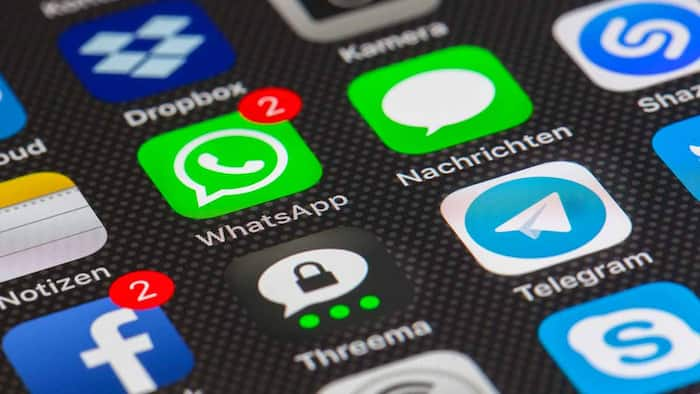
Written By Pranav Sawant
Published By: Pranav Sawant | Published: Nov 04, 2023, 12:56 PM (IST)

Billions of people rely on chat and call apps like WhatsApp and Telegram to send and receive information daily. While these apps have become a daily part of our lives, they may also expose our location to others without us knowing about it. With companies claiming such apps to be safe and private, someone out there might be tracking your IP address for doing things unknown. Also Read: WhatsApp Bans ChatGPT, Perplexity AI Bots For THIS Simple Reason
Yes, most of the chat and call apps like WhatsApp, Telegram, Messenger, Signal, FaceTime, Snapchat, and others might be giving your IP address if you have this feature turned on. Also Read: How To Delete Bulk Messages In WhatsApp
All of these apps use a Peer-to-Peer connection for calls. Peer-to-peer or P2P connections are private, which means you are talking directly to the other person. There’s a direct connection and no server is involved, which offers clear calls and no intervention from the company that owns the app.
That sounds great, however, there’s a potential risk involved in such calls. Since the P2P call connection is established between you and the participant directly, it keeps the IP address exposed.
That said, the person on the other end or you can see each other’s IP address by doing some tweaking. This can be done using third-party apps or if your device is rooted, getting an IP address while on call is a fairly simple task.
But what does an IP address give out? Although the IP address doesn’t reveal your exact location, it does give a geographical area or city alongside your ISP details. Is that risky? To some extent but not much to worry about if you keep note of a couple of things.
— Don’t accept calls from an unknown number (this means, don’t accept those lottery calls from a number out of India).
— Immediately block an unknown number if you detect anything suspicious.
If you want a surefire way of hiding your IP address, there’s a way. Select apps have the option to disable P2P connection and instead, relay calls through a server. This makes it a three-way connection so your IP address isn’t revealed. But such a three-way connection may affect the quality of audio and there could also be some latency.
Here’s how you can mask your IP address.
Telegram
Go to Settings > Privacy and Security > Calls (in the Privacy section) > Tap on Never in the PEER-TO-PEER section.
Unfortunately, WhatsApp doesn’t have the ability to disable a P2P connection. In fact, WhatsApp itself decides when the call will be P2P and when it will be a relayed call, depending on factors like which option out of the two provides the best quality and latency.
However, WhatsApp is working on a feature to protect your IP address in calls. Once this feature is turned on, the call will be relayed through WhatsApp servers. As of now, the feature is in beta, but it should be available to everyone soon.
Signal
While Signal doesn’t have the option to disable P2P connection, it has an option to ‘Always Relay Calls’. It will again, mask your IP at the cost of reducing call quality by a slight margin.
To turn it on, Go to Settings > Privacy > Advanced > Turn on the ‘Always Relay Calls’ option.
Messenger
Similar to WhatsApp, Meta also doesn’t that an option to disable P2P calls on Facebook Messenger. And we don’t know if Meta is working on any feature to mask the IP address on the Messenger app.
Snapchat
It’s unclear whether Snapchat relies on a Peer-to-Peer connection for calls or uses the server-based method. Once we receive more information, we’ll update this part.
FaceTime
It’s Apple so don’t expect an option to disable P2P connection on iOS devices. Again, we aren’t sure whether Apple is working on any of such features.